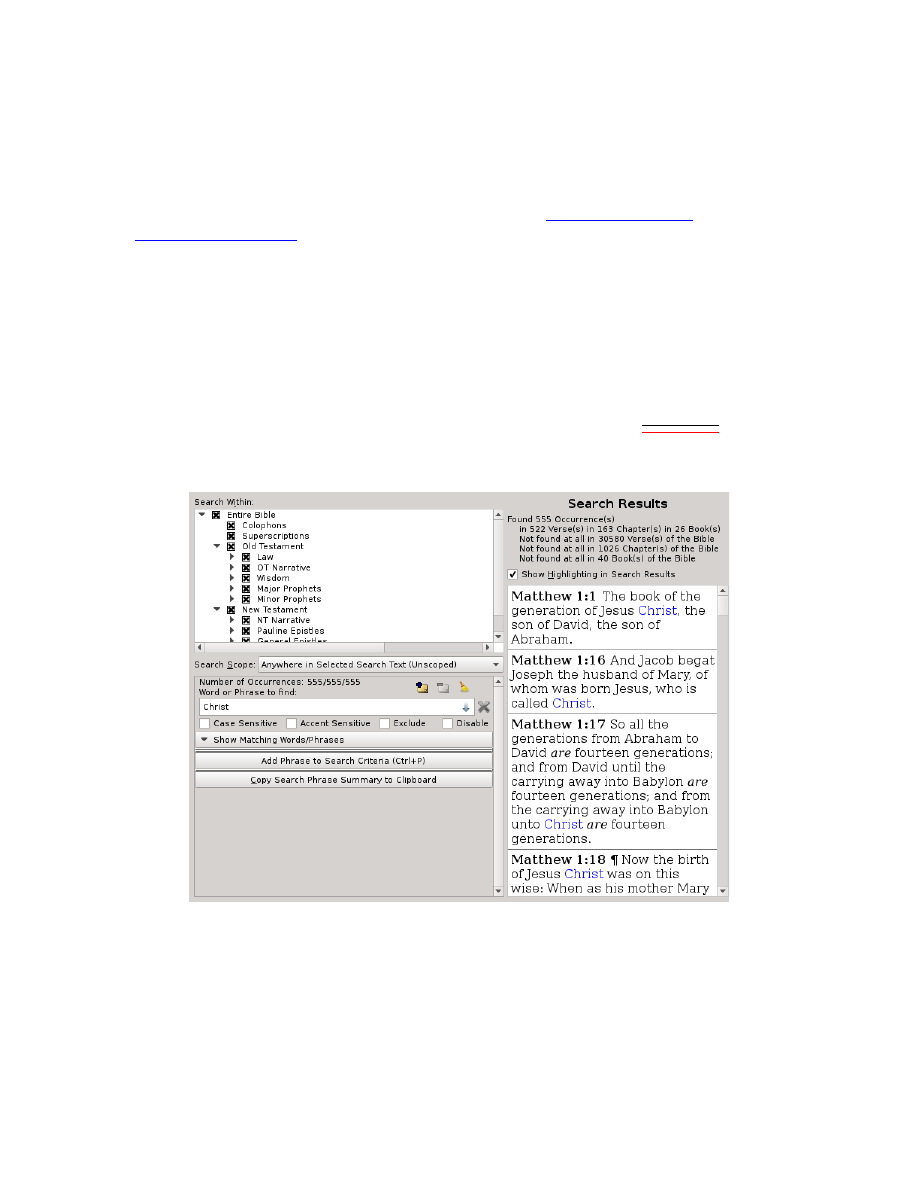
Wildcards of “*” and “?” are accepted and have the same meaning as they do in
most operating systems, with “*” matching any of zero or more characters and “?”
matching any single character. Also, character-sets specified in matching brackets
(“[” and “]”) can be used to match from a specific list of characters for a given
position. You can also use the “OR-operator” character of “|” to specify multiple
Subphrases within a single Search Phrase entry. See
Therefore, if you wanted to search for all words beginning with “ch”, you could
simply enter “ch*”. Once you’ve added the “*”, the statistics, in this example,
would change to 4547/4547/4547, as the phrase “ch*” would be matching 4547
occurrences and 4547 of them would be contributing to the “Anywhere in
Selected Search Text (Unscoped)” Search Scope with a Search Within the “Entire
Bible”, as selected above the Search Phrases.
If you continue typing the word “Christ”, that we began to search for, once you
have “Christ” entered, you’ll notice the font will change from a “strikeout” font
back to normal to indicate the word is found, and the Search Results Pane will
automatically update with the results:
You will find that the word “Christ” appears 555 times in the Search Scope of
“Anywhere in Selected Search Text (Unscoped)” with a Search Within of the
“Entire Bible”. Note that this is ONLY the word “Christ”. It does not include
“Christ’s” or “Christs”, as you see in the drop list. Nor does it include “Christian”
or “Christians”.
29